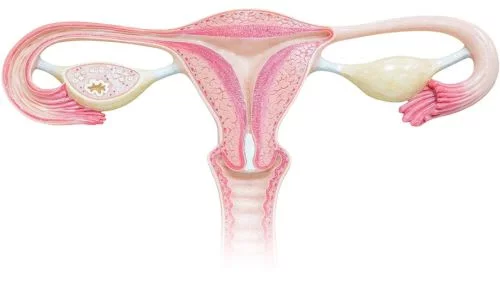Risk Factors of Gynecological Cancer
Gynecological cancers can affect woman, some of the women may be at higher risk of cancer. Recognizing the risk factors can help women take advantage of screening health, which can detect problems before they become serious.
A risk factor is associated with chances of Increasing to develop a particular health condition, such as gynecological cancer. There are different types of risk factors, it should be notified that having one or more risk factors does not mean a woman will develop gynecological cancer. Most of the women have at least one risk factor but will never develop a gynecological cancer, while others with a gynecological cancer may have no risk factors. Even if a woman with a gynecological cancer has a risk factor, it is usually hard to know how much that risk factor contributed to the development of her disease.
There are several factors associated with the risk of developing one or more types of gynecological cancer. These risk factors include:
- increasing age
- having a strong family history
- identified gene mutations
- reproductive history, such as child-bearing
- exposure to hormones & produced by the body or taken as medication
- exposure to diethylstilboestrol (DES) in the womb
- viral infection such as human papillomavirus (HPV) infection
- lifestyle factors such as smoking, drinking alcohol and those leading to excess body weight.
Gynecological Cancer Risk Factors and Their Impact on Fertility
Gynecological cancers, which include ovarian, cervical, uterine, vaginal, and vulvar cancers, can affect a woman’s reproductive health in multiple ways. While some women may be at higher risk due to various factors, recognizing these risks enables early intervention, timely screenings, and informed reproductive choices.
A risk factor increases the likelihood of developing a particular health condition, such as gynecological cancer. However, it is essential to note that having one or more risk factors does not guarantee that a woman will develop cancer. Many women with risk factors never experience gynecological cancer, while some without apparent risk factors may still develop the disease. Even if a risk factor is present, determining its precise role in cancer development can be challenging.
How Gynecological Cancers Affect Fertility
For many women, gynecological cancers and their treatments can have profound effects on woman’s fertility. Since these cancers often involve the reproductive organs, treatments such as surgery, chemotherapy, and radiation can impact a woman’s ability to conceive. The extent of the effect depends on several factors, including the type of cancer, stage at diagnosis, and the treatment plan.
- Surgical Treatments and Fertility: Procedures such as hysterectomy (removal of the uterus) or oophorectomy (removal of the ovaries) are sometimes necessary for treating gynecological cancers. These surgeries result in permanent infertility.
- Chemotherapy and Egg Quality: Chemotherapy drugs can damage ovarian follicles, leading to decreased ovarian reserve, premature ovarian failure, or early menopause, which can affect a woman’s ability to conceive.
- Radiation Therapy and Ovarian Function: Pelvic radiation can damage the ovaries and uterus, affecting egg production and the ability to carry a pregnancy.


